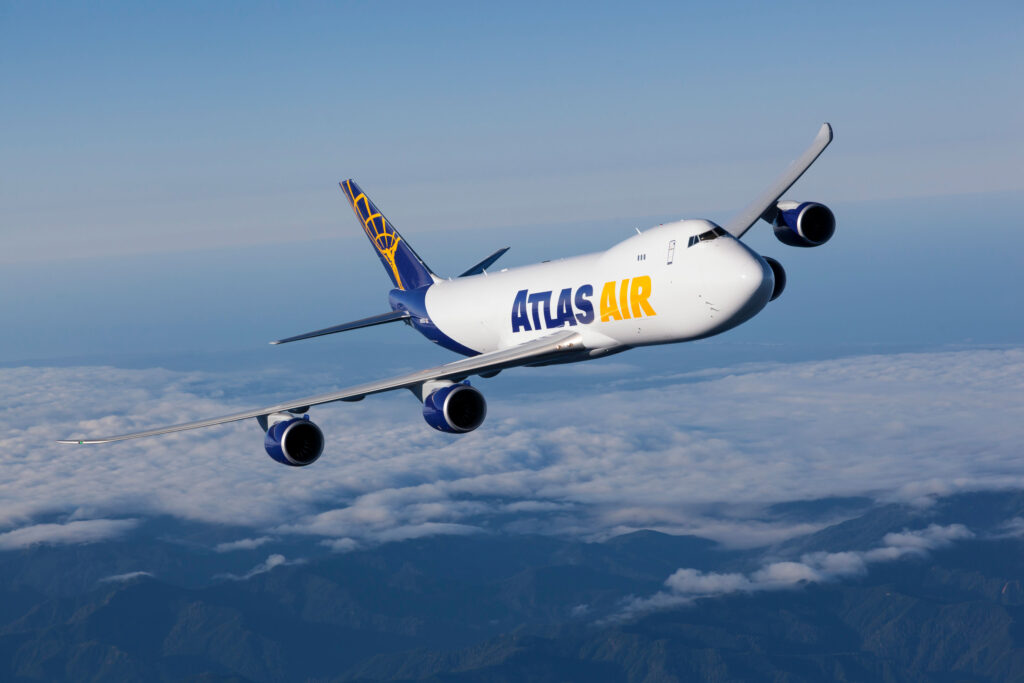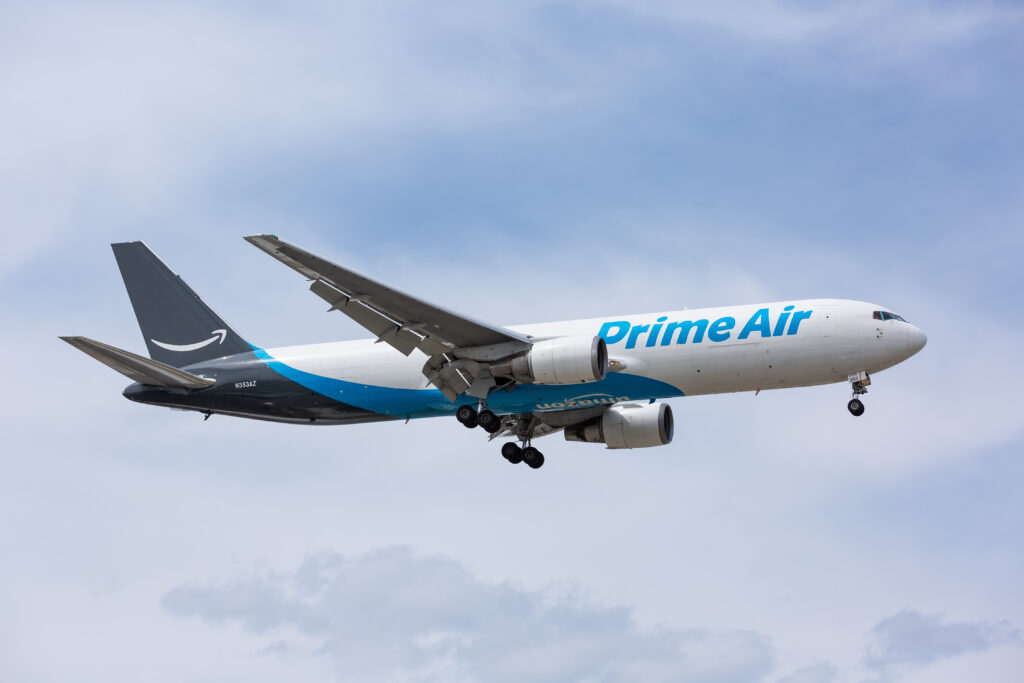40 years of pioneers and transformation
02 / 08 / 2023

Issa Baluch (left) and Ram Menen
A group of entrepreneurs have helped reshape the airfreight sector and build the industry we know today. Let’s take a look at some of the visionaries of the past four decades.
Cataclysmic events such as 9/11 have had a huge impact on the airfreight business, but equally profound changes have come from within.
This is, after all, a people business. It would not be where it is today without the actions of visionaries who spotted or opened new horizons and took the industry in new directions.
The air cargo business was a different galaxy 40 years ago. It had been deregulated – but it took years for the mindset of many players to adjust to the new reality.
Until the early 1990s, many forwarders still regarded themselves as agents for carriers with exclusive access to shippers.
An article in Air Cargo News, which reported word of a forwarder boycott of KLM, proved an inadvertent catalyst for a debate onthe issue that ultimately helped redefine some relationships.
According to an executive close to the situation, managers at two large European forwarders at the time claimed that cargo agents were on the barricades because the airline was bypassing them to deal directly with shippers.
He recalls that neither had the airline tried to cut out agents nor was there a boycott going on.
Faced with the noise kicked up by the story, KLM Cargo chief Jacques Ancher, one of the outstanding visionaries in this industry, refrained from fighting bogus claims of a broad boycott and launched a debate instead on the need – and right – of airlines to talk with shippers.
Global partner
It marked a milestone in the transformation of the carrier-forwarder relationship and in the nascent realisation that the future of the industry would lie in collaboration and joint efforts to develop collective efficiencies.
This evolution went hand in hand with the realisation that the air cargo industry was a component of global supply chains and needed to project itself beyond its perimeter and reach out to other industries and institutions.
The International Air Cargo Association (TIACA) emerged as a fulcrum for this effort.
Growing out of the International Air Cargo Forum that had been started in the 1960s, it was formed in 1990.
True to its nature, the organisation had a number of founding fathers. Among the most prominent were the first TIACA chairmen, Challenge Air Cargo president Bill Spohrer, Emirates SkyCargo chief Ram Menen and Cargolux chief Robert Arendal.
Alongside collaboration with other organisations and government bodies around the world, TIACA has engaged with academia and private sector firms to address the needs of the industry in matters such as consultancy and advocacy, training and recruitment.
Without its drive, air cargo would probably not have become part of the curriculum of the supply chain courses that have proliferated over the past 25 years.
Air cargo’s role in global supply chains underwent massive changes. Propelled by advances in technology, the shelf life of products shrank significantly, which often called for shorter transit times.
At the same time, the emergence of China as the world’s factory floor dramatically accelerated the globalisation of supply chains and sent volumes through the roof, turbocharging demand for capacity on the oceans and in the air.
Logistics around many product launches moved into a three-stage process where the first batch was rushed out by airfreight, followed by a second wave using sea-air and then the bulk of the goods moved by ocean carrier. Sea-air was not a novel product, but it rose to unprecedented prominence through a torrent of shipments transiting the Middle East.
Issa Baluch, founder and chief executive of Swift Freight International, was a driving force behind the rise of the UAE as the world’s largest sea-air hub. He has been a prominent voice of the industry in his roles with FIATA and other industry bodies.
The market required an influx of widebody freighters, but many airlines had reservations about the necessary investment – and return on investment.
Spotting an opportunity, Michael Chowdry, who had started life in aviation flying crop dusters and later leased passenger planes to major carriers such as PanAm, realised that it did not matter what logo was on the tail of a freighter.

Photo: Atlas Air
Payload capacity
He founded Atlas Air in 1992, which rapidly grew into the largest ACMI provider of B747 freighters, eagerly embraced by China Airlines, KLM and Emirates and subsequently by a host of airlines, forwarders and others.
Chris Foyle, scion of the family that owned the legendary Foyles bookstore chain and for some time chairman of TIACA, was instrumental in expanding the payload capacity of commercially available freighter aircraft.
He saw the benefits of the Antonov 124 for global airfreight and spent two years pushing to get the giant plane on the UK register to allow worldwide operations.

Chris Foyle (left) and Larry Coyne
The industry also learned that it was possible to run a cargo carrier without a plane.
Larry Coyne started the world’s first virtual cargo airline with the establishment of Coyne Aviation in 1994, which used its airline operating certificate to manage international flights leveraging third-party carriers.
The company quickly became the leading carrier between Europe and the CIS countries, especially in the Caucasus and Central Asia.
Like Foyle, Menen and others, Coyne has been a passionate advocate of the industry and served as chairman of TIACA.
Land transport was always a component of air cargo, but the focus on it sharpened with the build-up of road feeder services.
In Europe, Cargolux was a leading proponent, leveraging RFS to turn an airport without a significant cargo base in its catchment area into a major hub.
In the US, Forward Air was founded in1990 by Scott Niswonger. It subsequently grew into the leading RFS provider in the market.
RFS was both a competitor to air carriers and a solution for forwarders as regional freighter networks other than the integrators’ folded.
Names such as Kitty Hawk, Emery and BAX Global mark the demise of regular intra-North American freighter operations not focused on parcels.
In the international arena, Jim Crane, founder of Eagle Global Logistics, upped the block space game with a bold move to buy out entire airline bellies, which made him a forerunner of the logistics firms that are using dedicated freighter services today.
On the European side, Panalpina was years ahead of most competitors with its dedicated freighter operations.
Players’ roles in the air cargo sector have gone through far-reaching change. Airline GSAs have expanded their range of services exponentially.
Forwarders have progressed on a path that turned them into supply chain consultants for their customers. Beneficial cargo owners are looking to them to establish the visibility to track their shipments and intervene if necessary.
Moving boxes from A to B and living on the spread between buy and sell rates is no longer enough to stay in business in the long run.
Large players such as DHL Global Forwarding have turned themselves into procurement agencies for their clients.
General cargo fragmented as airlines went down the road of product segmentation.
There had always been special procedures for cargo such as valuables or dangerous goods, but carriers such as Emirates led a move that broke down general cargo into a smorgasbord of special services combining commodity-specific offerings with a selection of speed and extra handling options.
The sharpened focus on the requirements associated with perishables and pharmaceuticals has spawned refinements in temperature control.
It also resulted in an effort to harness the collective expertise and agenda. In 2003 the Cool Chain Association was formed as abody bringing the parties involved in this together to foster innovation, education and collaboration.
Supported by advances in technology, the need for collective efficiencies has been a major driver for improved data flow between the parties involved in a supply chain.
However, older technology has also acted as a brake on the development of better communication.
Menen was one of the first people in the industry to act on the realisation that legacy systems were hampering progress by restricting data exchanges to certain standards.

Copyright: Carlos Yudica/ Shutterstock
External disruption
With the implementation of its SkyChain starting in 2004, Emirates was the first carrier to field an IT platform that was system‑agnostic and moved past the constraints of legacy technology.
Events such as the Covid-19 pandemic aside, disruption for the air cargo sector has also come from external players.
Recently, the industry has witnessed the incursion of e-commerce giants such as Amazon and Alibaba via their respective logistics arms, which has resulted in rapidly expanding freighter fleets.
At the same time, leading container shipping operators have encroached on the airfreight business with the launch of freighter operations.
Like the integrated express operators 40 years ago, these entrants pose a competitive threat, but they are also parts of an industry where it is impossible for individual players to operate in isolation.
FedEx took over Flying Tigers in 1988, a move that reinforced worries that the integrators might be an existential threat to airlines.
Currently, the company is in the process of trimming its freighter fleet and handing more of its traffic to airlines for carriage.
The industry has come a long way over the past 40 years, with more change in the past 25 years than in the 80 years before, according to one air cargo veteran.
However, in some ways, it has not changed enough. Recent developments suggest that cargo appears to be slipping off some airlines’ radar again after its brief spot in the sun during the Covid-19 lockdowns.
“Cargo has to be a core part of the airline business,” comments industry veteran Stan Wraight, chief executive and president of Strategic Aviation Services International.
“The airlines still haven’t learned that lesson.”














